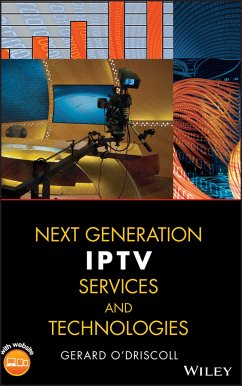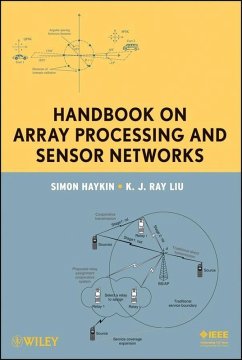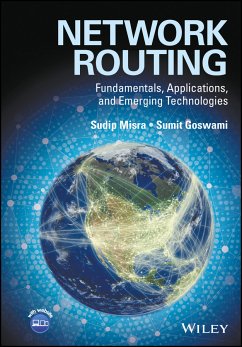
Linear and Non-Linear Video and TV Applications (eBook, PDF)
Using IPv6 and IPv6 Multicast
Versandkostenfrei!
Sofort per Download lieferbar
73,99 €
inkl. MwSt.
Weitere Ausgaben:

PAYBACK Punkte
0 °P sammeln!
Provides options for implementing IPv6 and IPv6 multicast in service provider networksNew technologies, viewing paradigms, and content distribution approaches are taking the TV/video services industry by storm. Linear and Nonlinear Video and TV Applications: Using IPv6 and IPv6 Multicast identifies five emerging trends in next-generation delivery of entertainment-quality video. These trends are observable and can be capitalized upon by progressive service providers, telcos, cable operators, and ISPs.This comprehensive guide explores these evolving directions in the TV/video services industry, ...
Provides options for implementing IPv6 and IPv6 multicast in service provider networks
New technologies, viewing paradigms, and content distribution approaches are taking the TV/video services industry by storm. Linear and Nonlinear Video and TV Applications: Using IPv6 and IPv6 Multicast identifies five emerging trends in next-generation delivery of entertainment-quality video. These trends are observable and can be capitalized upon by progressive service providers, telcos, cable operators, and ISPs.
This comprehensive guide explores these evolving directions in the TV/video services industry, including worldwide deployment of IPv6, IPTV services, web-produced video content, and the plethora of different screens available, from TV to iPad. It offers practical suggestions as to how these technologies can be implemented in service provider networks to support cost-effective delivery of entertainment, and how new revenue-generating services can be brought to market.
Important topics include:
Linear and Nonlinear Video and TV Applications: Using IPv6 and IPv6 Multicast is indispensable reading for planners, CTOs, and engineers at broadcast TV operations, Cable TV operations, satellite operations, Internet and IS providers, telcos, and wireless providers.
New technologies, viewing paradigms, and content distribution approaches are taking the TV/video services industry by storm. Linear and Nonlinear Video and TV Applications: Using IPv6 and IPv6 Multicast identifies five emerging trends in next-generation delivery of entertainment-quality video. These trends are observable and can be capitalized upon by progressive service providers, telcos, cable operators, and ISPs.
This comprehensive guide explores these evolving directions in the TV/video services industry, including worldwide deployment of IPv6, IPTV services, web-produced video content, and the plethora of different screens available, from TV to iPad. It offers practical suggestions as to how these technologies can be implemented in service provider networks to support cost-effective delivery of entertainment, and how new revenue-generating services can be brought to market.
Important topics include:
- Evolving video consumption habits and possible network implications
- An overview of IPv6 address capabilities, protocols, quality of service (QoS), and more
- Process descriptions of IP multicast and IPv6 multicast approaches and challenges
- A detailed overview of IPTV systems and technologies, including architectural requirements, QoE and QoS, security and content protection, networks, and more
- Internet-based TV technologies: streaming, content distribution networks, P2P networks, and cloud computing
- Non-traditional video content sources and their implications
Linear and Nonlinear Video and TV Applications: Using IPv6 and IPv6 Multicast is indispensable reading for planners, CTOs, and engineers at broadcast TV operations, Cable TV operations, satellite operations, Internet and IS providers, telcos, and wireless providers.
Dieser Download kann aus rechtlichen Gründen nur mit Rechnungsadresse in D ausgeliefert werden.












